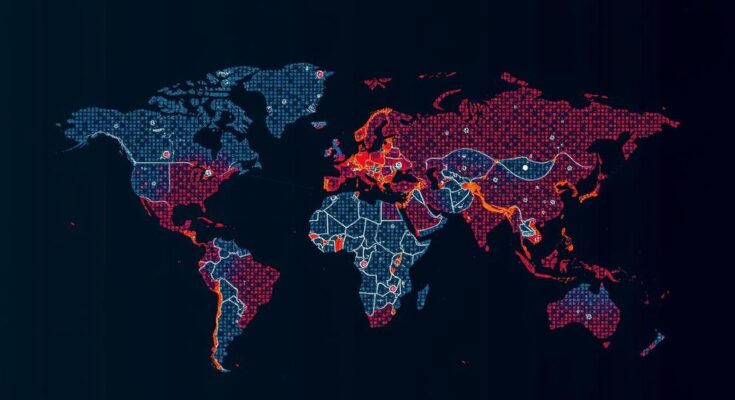Meta has reported a modest impact of AI on the 2024 global elections, largely due to effective measures against misinformation campaigns. Despite concerns, AI-generated disinformation was quickly flagged, and most threats stemmed from state actors in Russia, Iran, and China. There are ongoing discussions about content moderation and the role of AI in future elections.
Meta Platforms Inc. has reported that the anticipated influence of artificial intelligence (AI) on the global elections of 2024 has been minimal. The company indicated that its defenses successfully mitigated AI-driven misinformation campaigns, thereby limiting their effectiveness. Nick Clegg, Meta’s President of Global Affairs, stated that the use of generative AI was not significantly effective for those attempting to propagate disinformation. In 2024, Meta operated multiple election operations centers worldwide, focusing on major elections across various countries including the United States and India. Most disinformation efforts that were thwarted originated from state actors in Russia, Iran, and China, totaling about 20 covert operations disrupted this year. Despite concerns regarding AI-fueled misinformation, it turned out to be low in volume, and Meta encountered few successful instances of AI-generated misleading content.
Moreover, Clegg noted that tools such as deepfake technology, which were feared to manipulate public opinion, were quickly identified and flagged by Meta’s systems. In a proactive measure, the company rejected numerous requests for AI-generated content related to prominent political figures. Despite the prevalent anxiety surrounding AI’s potential to distort election integrity, studies indicated that actual instances of impactful misinformation were limited.
However, Meta acknowledged a shift in misinformation tactics to other platforms, particularly on TikTok, where AI-generated videos featuring political misinformation have been present. A recent Pew Research survey revealed that a majority of Americans have a pessimistic view of AI’s role in elections, anticipating more negative than positive applications. While Meta’s actions have elicited public scrutiny related to content moderation, the firm maintains that its platforms focused on promoting credible information about candidates and voting procedures. Meta’s policies have sparked debates about censorship, especially concerning conservative viewpoints, as Republican lawmakers express concerns regarding content moderation practices. Clegg mentioned ongoing discussions about the future of technology policy, particularly under the incoming Trump administration, emphasizing the importance of AI regulation in the discourse.
As artificial intelligence technology continues to evolve, concerns regarding its potential to disrupt democratic processes during elections have risen significantly. The ability of AI to generate convincing disinformation, including videos and audio deepfakes, has instigated fears that misinformation could heavily influence public opinion and electoral outcomes. Thus, technology companies, particularly social media platforms, face the challenge of managing and mitigating the risks associated with such AI-generated content. Meta has been at the forefront of these discussions, with its extensive reach across platforms like Facebook and Instagram rendering it a critical player in maintaining electoral integrity in the realm of misinformation.
In summary, Meta’s recent report suggests that the feared impact of AI on the global elections of 2024 was largely overstated, with the company’s preventive measures effectively curtailing significant threats from misinformation campaigns. Although there remains concern regarding the future of AI misuse, especially on emerging platforms such as TikTok, the majority of AI-driven disinformation was quickly identified and dealt with. Continued vigilance and discourse surrounding the regulation of AI’s role in elections will be critical to safeguarding democratic processes in the future.
Original Source: www.aljazeera.com




